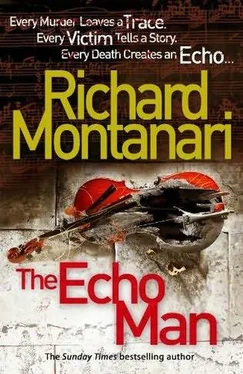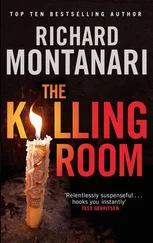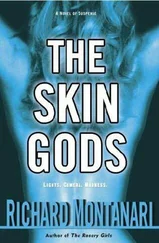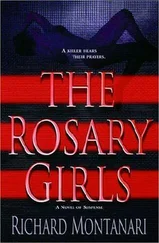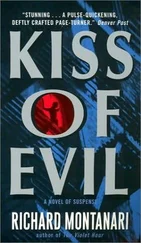Richard Montanari - The Echo Man
Здесь есть возможность читать онлайн «Richard Montanari - The Echo Man» весь текст электронной книги совершенно бесплатно (целиком полную версию без сокращений). В некоторых случаях можно слушать аудио, скачать через торрент в формате fb2 и присутствует краткое содержание. Жанр: Полицейский детектив, на английском языке. Описание произведения, (предисловие) а так же отзывы посетителей доступны на портале библиотеки ЛибКат.
- Название:The Echo Man
- Автор:
- Жанр:
- Год:неизвестен
- ISBN:нет данных
- Рейтинг книги:5 / 5. Голосов: 1
-
Избранное:Добавить в избранное
- Отзывы:
-
Ваша оценка:
- 100
- 1
- 2
- 3
- 4
- 5
The Echo Man: краткое содержание, описание и аннотация
Предлагаем к чтению аннотацию, описание, краткое содержание или предисловие (зависит от того, что написал сам автор книги «The Echo Man»). Если вы не нашли необходимую информацию о книге — напишите в комментариях, мы постараемся отыскать её.
The Echo Man — читать онлайн бесплатно полную книгу (весь текст) целиком
Ниже представлен текст книги, разбитый по страницам. Система сохранения места последней прочитанной страницы, позволяет с удобством читать онлайн бесплатно книгу «The Echo Man», без необходимости каждый раз заново искать на чём Вы остановились. Поставьте закладку, и сможете в любой момент перейти на страницу, на которой закончили чтение.
Интервал:
Закладка:
In his time on the job Byrne had investigated thousands of crimes, worked hundreds of homicides, had spent nearly half his life among the dead, the broken, the forgotten.
What was the Thomas de Quincy quote?
If once a man indulges himself in murder, very soon he comes to think little of robbing; and from robbing he comes next to drinking and Sabbath- breaking, and from that to incivility and procrastination.
Byrne had his own word for it.
Slippage.
To Kevin Byrne, slippage was about accepting levels of behavior that previous generations would have considered unthinkable, standards that had slowly become the norm, new lows from which the cycle could begin again, inching ever downward.
Lately he found himself thinking obsessively about all the innocent, the unavenged. He thought about the short, inconsequential life of Kitty Jo Morris, aged three, scalded to death by her mother's boyfriend, a man angered over the little girl's habit of taking the remote from the living room; of Bonita Alvarez, not quite eleven, who was pushed from the roof of a three-story building in North Philly for hiding one of her older sister's Rice Krispie treats in the broom closet; of Max Pearlman, aged eighteen months, left in a car overnight in January while his father smoked crack underneath the Piatt Bridge.
No headlines here. No NBC White Paper specials on the state of the American family. Just a little less space in the graveyards. Just a little slip.
Now, in Byrne's head, it was 1970. Blues legend Willie Dixon was proclaiming that he ain't superstitious. Neither was Kevin Byrne. He had seen too much to believe in anything but good and evil.
And evil is in the house, Byrne thought as he considered the man sitting across the bar from him at that moment, a man who had the blood of at least two people on his hands, a murderer named Eduardo Robles.
On a hot summer afternoon in 2007, Eduardo Robles and his girlfriend were walking down a street in Fishtown. According to Robles, at around 1:30 p.m. a car cruised slowly by, the deep bass of a rap song rattling the windows of nearby buildings. Someone in that car pointed a gun out the window and fired. Robles's girlfriend, a seventeen-year- old named Lina Laskaris, was struck three times.
Robles called 911, and when he arrived at the police station, after having his statement taken by a patrol officer on the street, a divisional detective assumed that the young man was a suspect, not a witness. The detective cuffed Robles and stuck him in a holding cell.
Byrne got the call at eleven p.m. When Robles arrived at the Roundhouse — nearly ten hours after the incident — Byrne removed the cuffs, sat Robles down in one of the interrogation rooms. Robles said he was hungry and thirsty. Byrne sent out for hoagies and Mountain Dew, then began to question Robles.
They danced.
At three o'clock the next morning Robles rolled, and admitted it had been he who'd shot Lina Laskaris. Byrne arrested Robles for murder at 3:06 a.m., read him his Miranda warnings.
The problem with the case was that, according to the law, the police had six hours to determine someone's status as a witness or a suspect.
Three days later the grand jury came back with a no-bill because they believed, rightly so, that the arrest had begun the moment Robles was mistakenly put in cuffs at the station house. In that moment Robles went from witness to suspect, and the clock began to tick.
Five days after killing his girlfriend in cold blood, Eduardo Robles was a free man, courtesy of the astonishingly incompetent work of a divisional detective who, incredibly, due to some unfathomable political connection, had recently been rewarded for his incompetence with a job in the Homicide Unit, at an increase in pay.
That man's name was Detective Dennis Stansfield.
Robles went back to the life and within months was involved in the murder of a man named Samuel Reese, a night clerk at a bodega in Chinatown. Police believed that Robles shot Reese twice, took the surveillance disk from the recorder in the back room, and walked out with sixty-six dollars and a can of brake fluid.
It was all circumstantial — no ballistics, no physical evidence, shaky witness accounts — nothing that would stand up in court. In terms of the reality of the law, bullshit.
Byrne had spent the past two days building a case against Robles, but it was not going well. Although they had not found the murder weapon, Byrne interviewed four people who could put Robles in that bodega at that time. None of them were willing to talk to police, at least not on the record. Byrne had seen the fear in their eyes. But he also knew that talking to a cop on the street corner, or in your living room, or even at your place of business was one thing. Talking to a district attorney in front of a grand jury, under oath, was something else. Everyone called to testify would understand that committing perjury in front of a grand jury carried a prison term of five months, twenty-nine days. And that was for each lie.
In the morning Byrne would meet with Michael Drummond, the assistant district attorney assigned to the Robles case. If they could get four people to implicate Robles, they might be able to get a search warrant for Robles's car and apartment, perhaps finding something that would create a daisy chain, and the evidence would roll in.
Or maybe it wouldn't get that far. Maybe something would happen to Robles.
You never knew about such things in a city like Philadelphia.
Were the police partially responsible for the death of Samuel Reese? In this case they were. Robles should never have gotten back on the street.
Slippage.
On the day Robles was arrested, Byrne visited Lina Laskaris's grandmother. Anna Laskaris was a Greek immigrant in her early seventies. She had raised Lina alone. Byrne told the woman that the man responsible for Lina's death was being brought to justice. He remembered the woman's tears, how she held him, how her hair smelled of cinnamon. She was making pantespani.
What Byrne remembered most was that Anna Laskaris had trusted him, and he had let her down.
Byrne now caught a glimpse of himself in the filmy mirror behind the bar. He wore a ball cap, and the glasses he had been forced to start wearing lately. If Robles had not been drinking he might have recognized Byrne. But Byrne was probably just a blur in the near distance to Robles, as well as to everyone else in the bar. This was no upscale Center City watering hole. This place was for hard drinkers, for hard men.
At 12:30 Robles stumbled out of the bar. He got into his car and drove down Frankford Avenue. When Robles reached York Street he turned east, drove a few blocks, parked.
Byrne sat in his car across the street, and watched. Robles got out of his car, stopped twice to talk to people. He was looking to score. Within minutes a man approached.
Robles and the other man walked, a little unsteadily, down the alley. A moment later Byrne saw light flare against the dirty brick wall of the alley. Robles was hitting the rock.
Byrne got out of his car, looked both ways up the street. Deserted. They were alone. Philadelphia was once again sliding into slumber, except for those who moved silently through the harbor of night.
Byrne stepped into shadow. From somewhere, perhaps deep inside him, a long-forgotten melody began to play.
It sounded like a requiem.
Chapter 6
Monday, October 25
The early morning run through Pennypack Park had become a sacrament, one that Jessica was not quite ready to relinquish. The people she saw every morning were not just part of the landscape but part of her life.
There was the older woman, always meticulously turned out in 1960s pillbox chic, who walked her four Jack Russell terriers every morning, the dogs in possession of a wardrobe more extensive and seasonal than Jessica's. There was the tai chi group who, rain or shine, performed their morning rituals on the baseball diamond near Holme Avenue. Then there were her buddies, the two Russians, half-brothers, both named Ivan. They were well into their sixties, but incredibly fit, as well as shockingly hirsute, given to jogging in their matching lime- green Speedos in summer. For half-brothers they looked almost identically alike. At times Jessica could not tell them apart, but it didn't really matter. When she saw one of them she simply said, 'Good morning, Ivan.' She always got a smile.
Читать дальшеИнтервал:
Закладка:
Похожие книги на «The Echo Man»
Представляем Вашему вниманию похожие книги на «The Echo Man» списком для выбора. Мы отобрали схожую по названию и смыслу литературу в надежде предоставить читателям больше вариантов отыскать новые, интересные, ещё непрочитанные произведения.
Обсуждение, отзывы о книге «The Echo Man» и просто собственные мнения читателей. Оставьте ваши комментарии, напишите, что Вы думаете о произведении, его смысле или главных героях. Укажите что конкретно понравилось, а что нет, и почему Вы так считаете.
